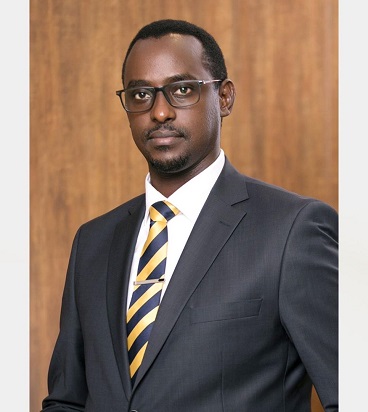By Allan Tumushabe
As Africa’s gaming industry grows at an unprecedented pace, the fundamental question is no longer whether we will grow, but how we grow and whether that growth will be sustainable, ethical, and inclusive.
At betPawa, we firmly believe that the future of gaming in Uganda and across the continent must be shaped not only by innovation and market reach but by a deep commitment to ethics and long-term impact.
True success in this industry is no longer defined by profits alone. It is measured by how we treat our players, how we contribute to the communities we operate in, and how responsibly we partner with regulators and society at large.
In Uganda, mobile technology has revolutionized access to gaming. Anyone with a smartphone can place a bet at any time of day.
While this digital advancement unlocks economic and entertainment opportunities, it also brings risks especially for those vulnerable to addiction and for underage individuals.
Under the Lotteries and Gaming Act Cap 334, individuals below the age of 25 are prohibited from engaging in gaming. Upholding this law is not just a regulatory requirement it’s a moral obligation.
At betPawa, we’ve heavily invested in initiatives such as Know Your Customer (KYC). Know your customer is process where businesses verify the identity of their customers and understand their financial activities to prevent fraud, money laundering, and terrorist financing. At betPawa, these protocols help us ensure players meet age and identity requirements before accessing our platform.
But verification technology alone isn’t enough. That’s why we’ve also introduced robust player activity monitoring tools designed to identify harmful gaming patterns early and trigger timely support mechanisms.
One of the most impactful aspects of our approach is our self-exclusion feature, which allows users to pause or limit their gambling voluntarily.
We complement this with partnerships such as our ongoing collaboration with Uganda’s Heart to Heart Centre which provides professional counseling and rehabilitation support for those facing gambling-related challenges.
Ethics in gaming, however, cannot be entirely automated. It requires a human touch. Our customer support teams are trained to recognize signs of distress and problematic behavior, offering players personalized support when they need it most.
To us, players are not just user IDs or data points. They are real people with responsibilities, emotions, and stories.
There is a persistent misconception that ethics and profitability are mutually exclusive in gaming.
On the contrary, we’ve found that responsible practices build more resilient and successful businesses particularly in emerging markets like Uganda.
Players are more loyal to operators who prioritize their well-being, and regulators are more open to working with businesses that demonstrate transparency and accountability.
Our responsible gaming tools, such as deposit limits, betting history logs, and self-assessment quizzes, are not just regulatory boxes to tick. They are empowering tools that help players make informed choices and stay in control of their gaming behavior.
Internationally, countries with mature gaming industries offer valuable lessons in regulatory design and ethical responsibility.
In the United Kingdom, for example, the Gambling Commission mandates strict affordability checks and promotes advertising standards aimed at preventing gambling harm.
Malta, one of the world’s most regulated online gaming jurisdictions, emphasizes player protection and industry integrity, making it a hub for responsible operators.
Australia’s National Consumer Protection Framework includes self-exclusion schemes and mandatory messaging about the risks of gambling.
Meanwhile, South Africa enforces age restrictions and betting limits, with a growing focus on public awareness around addiction.
In Macau the gambling capital of Asia the government has introduced awareness campaigns and capped betting access for certain demographics in a bid to tackle problem gambling.
Slovenia, though smaller in market size, has successfully implemented exclusion registers and invested in research to understand the psychological dimensions of gaming addiction.
These international practices show us that ethical gaming is not a limitation; it’s a competitive advantage. And it’s one that Uganda must strive to emulate as our sector grows.
Uganda has made commendable progress in strengthening its gaming regulatory environment, especially in reducing underage gaming. But as the sector evolves with emerging technologies, digital wallets, and new gaming formats, the law must evolve too.
A robust, future-ready framework must be adaptive, enforceable, and inclusive developed through ongoing dialogue among gaming operators, government bodies, civil society organizations, and local communities.
At betPawa, we are committed to supporting this evolution by offering data, insights, and honest feedback to help refine and raise industry standards.
Our commitment to ethical responsibility goes beyond prevention it extends to education. We are actively working to integrate financial literacy and mental health awareness into our platforms and campaigns.
Every player should understand both the entertainment value and the potential risks of gaming.
Through partnerships with regulators, NGOs, and educational institutions, we aim to roll out nationwide sensitization programs that reach all demographics including bodaboda riders. Knowledge is power, and informed players are safer players which is also good for our business.
Some of our most fulfilling outcomes have come from stories of real people who were helped by our systems. Our collaboration with the Heart to Heart Centre has already led to targeted interventions for individuals at risk.
Our strict KYC protocols have significantly reduced underage access to our platform, strengthening compliance while enhancing our reputation as a trustworthy operator.
As the CEO of Chop Gaming Limited Uganda, trading as betPawa, I’m proud of the progress we’ve made but I’m also aware that this is an ongoing journey.
Responsible gaming is not a destination you reach; it is a daily choice to do what’s right, even when it doesn’t offer immediate commercial gains.
We are betting on a future where integrity, innovation, and inclusivity define Africa’s gaming industry. If we hold true to that vision, we won’t just thrive as a business we’ll help reshape what success means for the entire industry.
The author is the CEO at Chop Gaming Limited Uganda (T/A betPawa)





